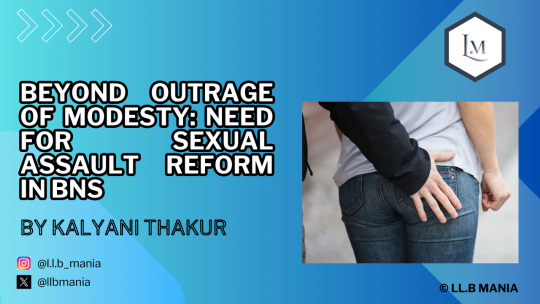Don't wanna be here? Send us removal request.
Text
Winzo Games Pvt Limited vs Google LLC [Case No. 42 of 2022, CCI]
By Manvee Facts of the Case Winzo Games Pvt. Ltd. (the Informant) filed a complaint under Section 19(1)(a) of the Competition Act, 2002 against Google LLC and its affiliates, alleging violations of Section 4 of the Act. The Informant, a digital gaming company operating the ‘WinZo’ platform, claims that Google imposes unreasonable terms through its Developer Distribution Agreement (DDA) and…
0 notes
Text
Analysis of Draft Digital Personal Data Protection Rules, 2025
By Manvee, Garima Bairagi and Pragati Chaurasiya Rule No.RuleAnalysisOur Viewpoint1Short Title and CommencementIt will be called the Digital Personal Data Protection Rules, 2025. These rules about data fiduciaries and consent managers will become effective on a specified date prescribed by the government. Whereas the rules pertaining to the establishment of the Data Protection Board and the…
0 notes
Text
From Risk to Resilience: Strategic Use of Indemnity and Guarantees
[Muskan Sharma is a 5th year B. Com LL. B (Hons.) student at the Institute of Law Nirma University, Ahmedabad] Introduction When business corporations merge or acquire, they navigate a complex landscape of agreements and due diligence to mitigate any future risk or harm associated with the corporation. Given, the binding nature of such agreements and the imposition of hefty penalty in the event…
0 notes
Text
Death Penalty in India - Perfectly Balanced
Vidit Raj Jain (HNLU Raipur) Introduction Death Penalty also known as Capital Punishment is the highest form of punishment under which the offender, sentenced to death is executed. The debate surrounding this has been going on for a long time now. Various rights groups, activists, among others have been fighting for striking down the Death Penalty as inhumane in character. They take the view…
0 notes
Text
The Role of Social Media in Trademark Disputes
By Sarferaaz Khaan (Law Graduate, Tamil Nadu Dr. Ambedkar Law University, Chennai) Introduction Social media platforms are becoming indispensable tools for businesses in the digital age to interact with customers and promote their brands. But social media’s broad appeal and accessibility also provide serious legal difficulties, especially when it comes to trademark law. This article examines…

View On WordPress
0 notes
Text
Supriyo vs. Union of India: Supreme Court on Same-Sex Marriage!
By Aditi Utkarsha Facts of the Case & Background The case revolves around the same sex marriage, legal obstructions and societal challenges faced by the LGBTQIA+ community in India, particularly about Section 377 of the Indian Penal Code and the right to marriage. Section 377 of the Indian Penal Code criminalized “carnal intercourse against the order of nature.” The provision, inherited from…

View On WordPress
#gay#high court#legality#lesbian#lgbtq#same sex marriage#supreme court#supriyo#transgender#union of india
0 notes
Text
Beyond Outrage of Modesty: Need for Sexual Assault Reform in BNS
By Kalyani Thakur (RGNUL Patiala) Introduction The Bhartiya Nyaya Sanhita (BNS), marks a new era in the realm of justice, promising to change the notion of crimes against women, and elevating their rights. This new legal framework aims to replace the outdated colonial-era Indian Penal Code (IPC) of 1860, enhancing efficiency and adapting to the evolving social and technological landscape.…

View On WordPress
0 notes
Text
A Comprehensive Guide to the Right to Strike: A Fundamental Right or a Legal Right
By Aditi Utkarsha Definition of Strike: Legal Perspectives According to the Merriam-Webster dictionary, a strike is defined as a work stoppage by a body of workers to enforce compliance with demands made on an employer or, a temporary stoppage of activities in protest against an act or condition.[1] In Section 1(q) of the Industrial Disputes Act of 1947, a strike means a cessation of work by a…

View On WordPress
0 notes
Text
Competitive Cooperative Federalism in India: Balancing
By Satyam Prakash (CNLU Patna – 2025 Batch) Growth and Inclusion Introduction On India’s 75th Independence Day, Prime Minister Narendra Modi highlighted the need for collective efforts to achieve inclusive development. He stressed the role of states in this journey and introduced the concept of “Competitive Cooperative Federalism,” which combines cooperation and competition among states to…

View On WordPress
0 notes
Text
Unmasking Deepfakes: Understanding, Identifying, and Mitigating Synthetic Content
By Anchal Kanthed (4th Year Student, Institute of Law, Nirma University, Ahmedabad) Image Source: https://www.businesstoday.in/technology/news/story/worried-about-your-images-videos-being-used-as-a-deepfake-heres-how-to-keep-media-safe-405132-2023-11-09 Introduction to Deepfake Technology In the contemporary era, Artificial Intelligence and its misuse are buzzwords. However, it is important to…

View On WordPress
0 notes
Text
Protecting Data in Artificial Intelligence Regime
By Sarferaaz Khaan (Final Year Student at the School of Excellence in Law, Tamil Nadu Dr. Ambedkar Law University) Image Source: https://www.dreamstime.com/ai-security-protecting-information-connected-world-secure-data-management-artificial-intelligence-technology-ai-security-image286790070 Introduction Securing data privacy is a crucial issue in an era marked by significant advancements in…

View On WordPress
0 notes
Text
The Interplay between the Insolvency & Bankruptcy Code, 2016, and SARFAESI Act, 2002
By Aarya Dubey [Student at MNLU, Aurangabad (Batch of 2027)] Image Source: https://pixabay.com/illustrations/man-figure-toy-pokes-fun-at-shovel-76196/ Introduction The primary purpose behind the introduction of the Insolvency and Bankruptcy Code, 2016, (henceforth, IBC) was to safeguard the interests of both creditors and stakeholders of the corporate debtor.[1] This consolidated framework has…

View On WordPress
0 notes
Text
Naz Foundation v. Government of NCT of Delhi (2009 Del HC)
By Saumya Sudarshini Introduction Nowadays, discussions surrounding homosexuality and homosexual relationships have become more normalized. However, for same-sex lovers, who remain a small minority in most parts of the world, criticism and discrimination at the hands of society have not come to an end. Equality for members of the LGBTQ+ community is still seen as a challenging issue. Gay,…

View On WordPress
0 notes
Text
Jacob Mathew v. State of Punjab (2005) 6 SCC 1
By Aarya Gurjar Facts The case of Jacob Mathew v. the State of Punjab dealt with the issue of the negligence of doctors. The accused was Dr Jacob Mathew and the informant was Mr Ashok Kumar Sharma.[1] The case is that the father of the informant Mr Jeevan Lal was admitted to CMC Hospital Ludhiana on 15th February 1995. On 22nd February 1995 at around 11 PM, Jeevan Lal faced difficulty in…

View On WordPress
0 notes
Text
Deo Narayan v. State of Uttar Pradesh (1973 AIR 473)
By Ayushi (3rd Year Student at HNLU Raipur – Batch of 2026) Introduction The case of Chandan Rama and Deo Narayan presents a complex legal scenario involving a dispute over land, a fatal altercation, and the subsequent legal proceedings that unfolded in Indian courts. It is a case that delves into the intricacies of self-defense, the right to private defense, and the interpretation of relevant…

View On WordPress
0 notes
Text
Shakti Vahini v. Union of India [2018]
By Aaron S John Image Source: https://www.thebluediamondgallery.com/wooden-tile/c/case-law.html Introduction Honor killing happens in many countries, one of them being India. The word “honor” in this context means to respect. But when something honorable is put next to a word like kill, it just doesn’t add up. Honor killing has been followed in many countries, and this is part of their own…

View On WordPress
0 notes
Text
Insolvency Resolution Process under Insolvency & Bankruptcy Code 2016
By Aaron S John & Adv. Nikita Vaigankar Introduction India passed the Insolvency and Bankruptcy Code, often known as the IBC, in 2016. This code brought about numerous important modifications and changes, and it was regarded as India’s most significant economic reform. It was thought that this law would hasten India’s insolvency procedure. The IBC’s primary objective is to alter the laws that…

View On WordPress
0 notes